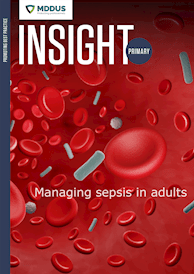These cases are based on actual calls made to MDDUS advisers and are published here to highlight common challenges within general practice. Details have been changed to maintain confidentiality.
Request to amend patient record
Q. An 18-year-old patient recently consulted one of our GPs alongside his mother (Mrs B). The patient later asked for a copy of his notes and now wants parts of the relevant entry to be deleted. He is unhappy at some of the opinions expressed by Mrs B and does not want them included in his patient record. The patient accepts that there is nothing inaccurate in what has been recorded.
Health professionals have a legal duty and professional responsibility to keep health records accurate and up to date. Patients have a legal right to ask for their records to be amended if they feel certain information is inaccurate, however erasure of parts of a medical record is usually only undertaken in exceptional cases. Given the information the patient is objecting to is not inaccurate, it would not be appropriate to erase it. This highlights the importance of only recording relevant information in the records; social and relationship matters included in the notes should be relevant factors that impact on the patient’s health. The practice could offer to add a note to the record clearly explaining the patient’s objections to the comments in question. Consult guidance from NHS England on amending patient records and from the Information Commissioner's Office (ICO) on an individual’s right to rectification under the UK GDPR.
GDPR for general practice
Q. I’m reviewing the practice’s documentation to make sure it complies with GDPR. Does MDDUS have any templates or other guidance for things like privacy notices that I could access to make sure I get it right?
Members can access a variety of useful resources within the Training & CPD section of the MDDUS website, including the GP risk toolbox. You will see there is a specific section within the toolbox on GDPR, which includes a downloadable guidance sheet on privacy notices - what they are for and how they should be composed. There is also information on other aspects of GDPR for GP practices, including data protection impact assessments, dealing with subject access requests and much more.
Disclosure to police
Q. I'm a GP and one of the practice patients vandalised my car. A member of staff witnessed the incident in the practice parking lot. Can I give the patient’s name and address to police when reporting the crime?
The General Medical Council has clear advice on this in its Confidentiality guidance. It states that “there can be a public interest in disclosing information to protect individuals or society from risks of serious harm, such as from… serious crime.” For example, “if a disclosure would be likely to be necessary for the prevention, detection or prosecution of serious crime, especially crimes against the person.” The endnotes to the guidance give examples of serious crime as “murder, manslaughter, rape and child abuse”. While this incident must be upsetting, unfortunately it is unlikely to meet the threshold for a “serious crime”, and so it would not be appropriate for you to disclose the patient’s name and address, as these are only known to you because of the doctor-patient relationship and are therefore confidential. The police are likely to interview the member of staff and the patient details should not be disclosed. If the police were to secure a court order requesting this information, then you would be allowed to disclose. It is worth noting that in these circumstances where property has been vandalised by a patient you are entitled to consider whether the trust between you and the patient has broken down such that it is necessary to end the professional relationship.
HCA flu jabs
Q. We are asking our healthcare assistants (HCAs) to administer flu vaccines this year, and understand this should be done under a patient specific direction (PSD). We are drafting the wording for our GPs to sign off on this – would this phrase suffice: I authorise the above patients to have their influenza vaccine today should they give consent and are in good overall health?
The short answer is ‘no’. A PSD in these circumstances must detail the patient name, date of birth, vaccine given, route of administration, dose, batch number and expiry alongside the signature of the registered prescriber. The prescriber who signs the form must be able to demonstrate that they have assessed the patient as suitable for the vaccination and are prescribing it on this basis. Each patient on the list must be individually assessed by the prescriber, and the prescriber has a duty of care and is professionally and legally accountable for the care they provide, including tasks delegated to others. The prescriber must be satisfied that the person to whom a task is delegated has the qualifications, experience, knowledge and skills to provide the care or treatment involved. There may be PSD templates available from your local ICB/trust/health board. The Care Quality Commission provides more detailed guidance on Patient Group Direction (PGD) and PSD.
Nurse with private work
Q. We recently hired a new advanced nurse practitioner (ANP) who is also qualified to carry out facial cosmetic work such as fillers. She plans to do this privately on her own time, but I’m concerned she may try to recruit our NHS practice patients. What should I do?
It is important that you make clear to the ANP that she must not advertise her cosmetic services to the practice’s patients, nor should she ask other staff to initiate such discussions on her behalf. Her private business must remain separate from her NHS work. The practice should ensure it has a robust policy on conflicts of interest, and that the nurse is fully aware of her responsibilities in complying with this. She must never allow her financial interests to influence, or be seen to influence, decisions she takes in her NHS role. The GMC has guidance on financial arrangements and conflicts of interest; while the nurse is not bound by GMC guidance, the practice should uphold these standards in relation to its provision of care to patients. The nurse should also be directed to Nursing and Midwifery Council guidance on conflicts of interest.
This page was correct at the time of publication. Any guidance is intended as general guidance for members only. If you are a member and need specific advice relating to your own circumstances, please contact one of our advisers.
Read more from this issue of Insight Primary

Save this article
Save this article to a list of favourite articles which members can access in their account.
Save to library

